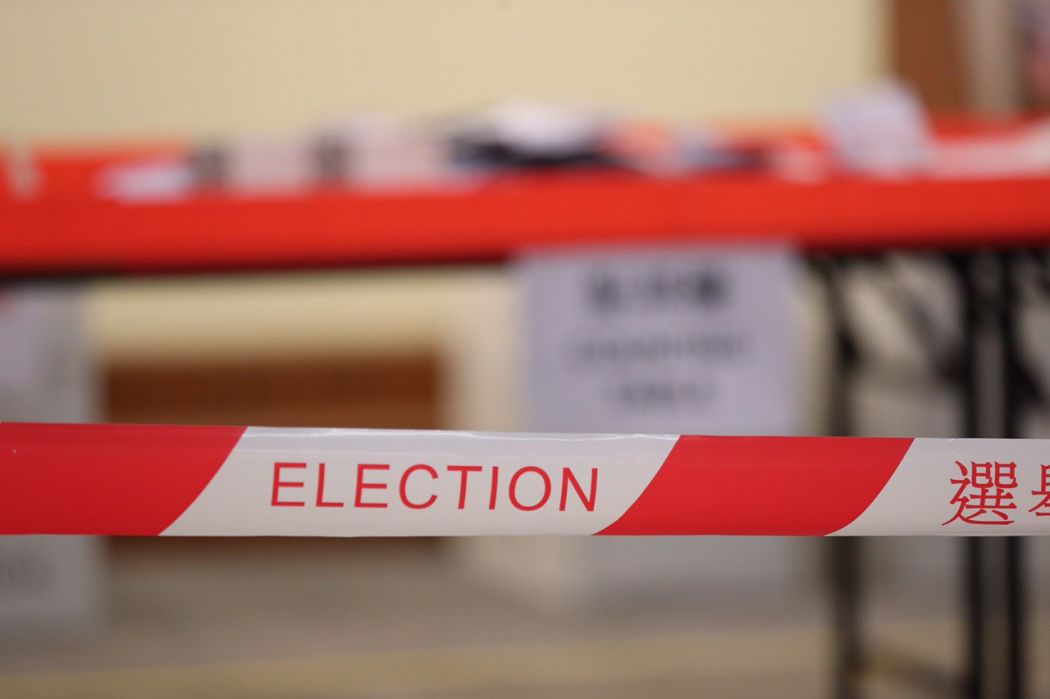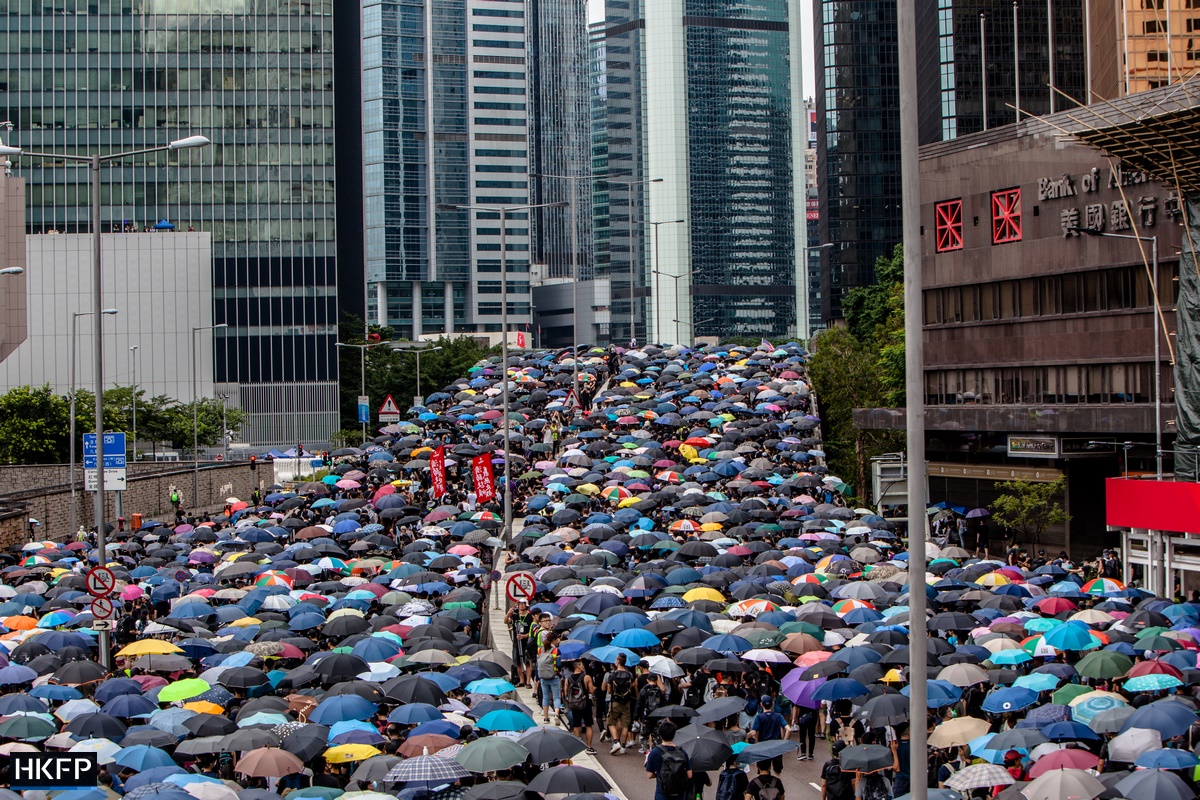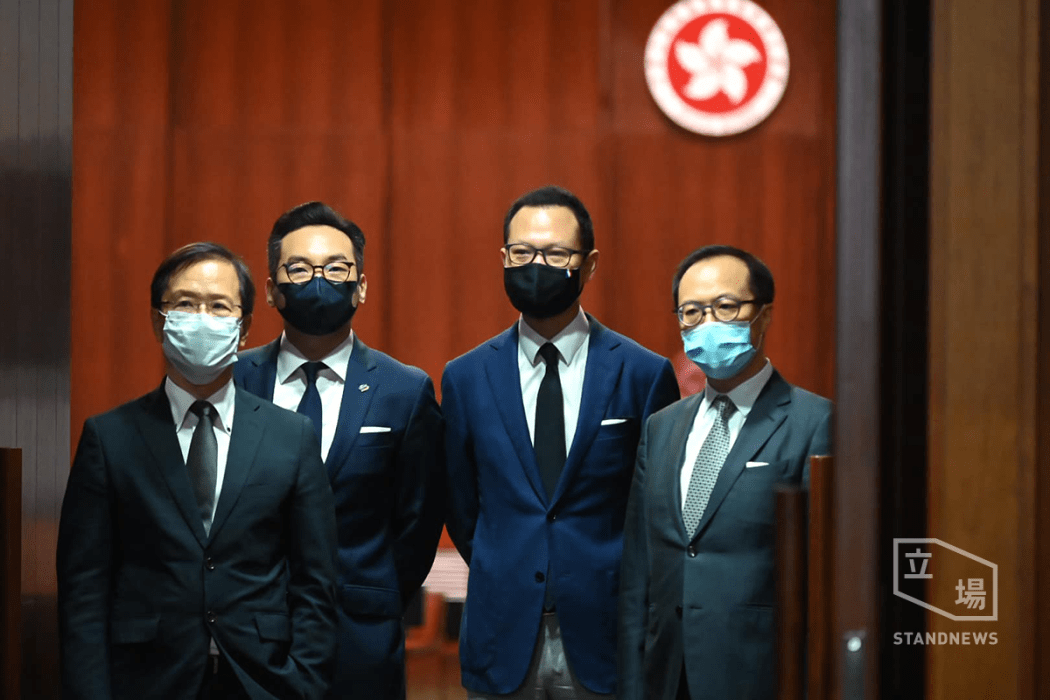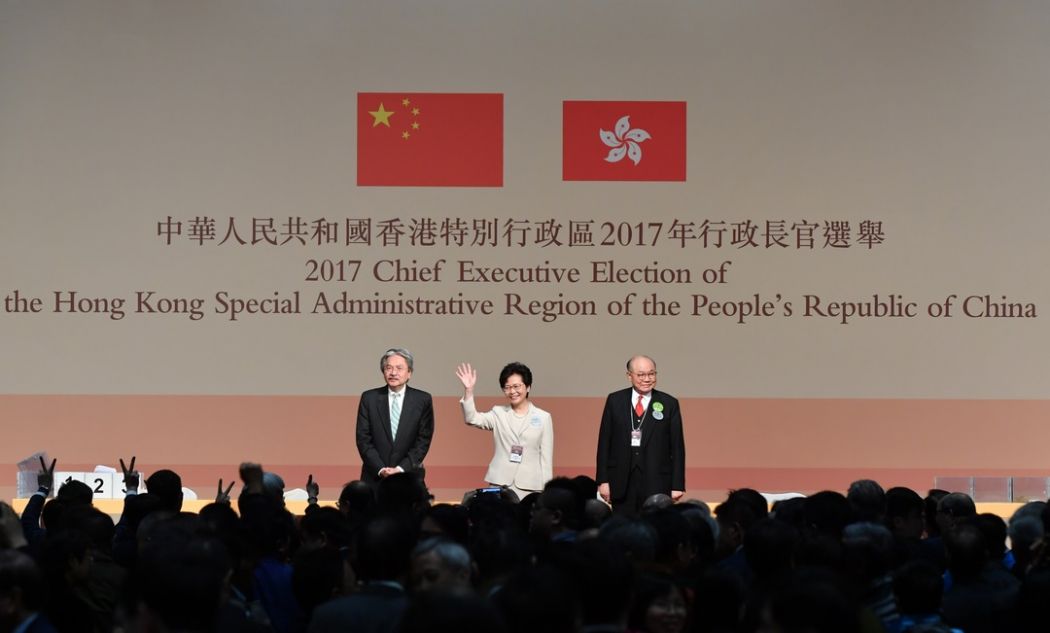When Chief Executive Carrie Lam announced the postponement of Hong Kong’s 2020 Legislative Council election, she cited the health risks posed by Covid-19. She made the announcement in late July, just as campaigning was about to get underway for the scheduled September 6 poll.
The council is a local law-making body but since Hong Kong is a semi-autonomous region of the People’s Republic of China, she needed formal approval from the central government. Approval came on August 11, in the form of a curiously phrased decision by the National People’s Congress Standing Committee (NPCSC). The election was to be postponed for “not less than one year.”

Why such a proviso? Were central leaders calculating the health risks and if so, how did they decide that at least one full year would be needed to subdue the virus?
In retrospect, they were most likely calculating the time necessary to complete the overhaul they were planning for the Legislative Council itself and the electoral designs necessary to consolidate the changes. This is because the renovations now being discussed anticipate major complex adjustments. Once in place they will also be able to eliminate the influence of Hong Kong’s current democracy movement representatives.
Covid-19 was a convenient excuse. The real reason is political — to buy time while Beijing drafters design ways to inoculate Hong Kong’s elected councils against what Chinese officials have referred to as a political virus — the virulent pro-democracy strain that has emerged here in recent years. Hong Kong’s legislature is to be tidied up and locked down in hopes of eliminating the infection and preventing its recurrence.
Out with the old
Hong Kong’s democracy movement has developed around the election cycles that began in the 1980s and 1990s, when universal suffrage elections were finally introduced by the colonial government. At the time, it was a momentous breakthrough following decades of dithering and procrastination.
Since Hong Kong’s 1997 return to Chinese rule, elections have been held regularly, following in sequence every four years. The 18 neighbourhood-level District Councils come first. Polls for the Legislative Council (LegCo) follow a year later. It currently has 70 seats – 40 directly-elected and 30 indirectly chosen by corporate bodies known as Functional Constituencies.

Hong Kong’s Chief Executive is elected once every five years via a convoluted arrangement that includes a selection of representatives from among all the sitting members of all the councils. The result is a 1,200-member Chief Executive Election Committee that regularly selects candidates who have received Beijing’s prior endorsement.
The essentials of this system are formalised in Hong Kong’s Basic Law constitution promulgated by Beijing in 1990. Some details were added later but the system has been the target of criticism from the start.
Not by coincidence, one of the democracy movement’s most intrepid reformers had zeroed in on this sequence of tedious electoral arrangements and scored some unexpected victories. As a further result, Benny Tai Yiu-ting also lost his job as a law professor at the University of Hong Kong.
The 2014 Occupy-Umbrella civil disobedience campaign was originally his idea. It was set in motion after Beijing’s decision against allowing genuine universal suffrage elections for Hong Kong’s Chief Executives. The date of Beijing’s decision was August 31, 2014.
Tai then turned his attention to the councils and came up with several schemes aimed at encouraging candidates to stop their factional infighting and voters to concentrate on winning seats instead of just rewarding their friends.
Younger candidates did much better than expected during the 2015-16 cycle, defying expectations that voters would punish them for the disruptive 2014 street blockades that continued for 79 days.

Voters didn’t punish them, but Beijing did. Several were disqualified during the oath-taking saga that began immediately subsequent to their election, during the swearing-in ceremony. The next step was total mobilisation with the anti-extradition law protests of 2019. These continued for months and marked the culmination of post-1997 frustration over Beijing’s unfulfilled promises about autonomy and universal suffrage elections.
Both candidates and voters then finally put factionalism behind them and voted overwhelmingly in the November 19 District Council elections for the pro-democracy coalition of candidates, all of whom joined in endorsing the anti-extradition law protests despite the violence and disruption they were causing.
The occasion was the first sequence of Hong Kong’s current election cycle. Benny Tai saw his efforts vindicated at last and described the elections as Hong Kong’s best ever. Democrats won majorities on all but one of 18 District Councils, heretofore the preserve of pro-establishment politicians and pro-Beijing localists.
Tai then exhorted candidates and voters to persist. A majority on Hong Kong’s 70-seat Legislative Council was within reach. In his frequent Apple Daily opinion pieces last spring, he called the 35+ seat goal a “lethal weapon” in the struggle to pressure Beijing into honouring its original pledges about universal suffrage elections and a high degree of autonomy.
It was the same “lethal weapon” language he had used in early 2013, when he galvanised activists with his street-blockade idea. By the spring of 2020, he was even speculating about being able to veto the government’s budget, which is one of the Legislative Council’s few real powers. But he noted, prophetically, that in the event of such a scenario, democrats should be prepared to face Beijing’s wrath.
Tai later acknowledged that maybe 35+ seats was a bit over-ambitious, but his arguments had clearly resonated in Beijing. Tai’s reasoning derived from the convoluted nature of the electoral system itself. District Councilors were allocated 117 seats on the Chief Executive Election Committee. With the November 2019 victories, most of those seats would be filled by democrats, although they would still account for only a small segment of the 1,200-member committee.

But Tai also reasoned that the five LegCo seats reserved for candidates from the District Councils would be won by democrats. So that with voter enthusiasm still high, 35+ seats might be a reach too far but democrats could come close.
As Beijing and Carrie Lam saw it, the 20+ democrats remaining in LegCo — after the oath-taking saga disqualifications — were already trouble enough, with their constant quorum calls and filibustering tactics. A few more such troublemakers would mean even more headaches.
In preparation for the scheduled September 6 LegCo election, democrats organised their own straw poll primaries. Again, the idea was to discourage factionalism, this time by allowing the voters themselves to winnow out the weaker candidates. Again, Benny Tai was in the lead as chief promoter of the straw poll exercise and champion of the winners. They were now well positioned to sweep the field again and repeat their November 2019 success.
But no one anticipated just how methodical and meticulous Beijing leaders would be in bringing an end to all these victories. The new National Security Law was promulgated on June 30 and went into effect immediately.
Strict standards, mirroring those demanded by the new law, were used by vetting officers when the time came to begin validating candidacies for the September 6, election. The top-scoring pro-democracy hopefuls from the July straw poll — 12 in all — weredisqualified on the grounds they did not meet the new standards of loyalty. Included among those denied validation were four incumbent legislators seeking re-election.
After the September 6 election was postponed, the four were allowed to remain in what became the extended term of the sitting legislature. But then, on November 11, the NPCSC issued another decision. This one allowed the Hong Kong government to remove, without due process, any legislator who did not meet the new standards.
The four were summarily expelled. They included three veteran Civic Party members: Dennis Kwok, Alvin Yeung, and Kwok Ka-ki, plus Kenneth Leung, a Functional Constituency legislator for the accounting sector.

All 15 of the remaining pro-democracy legislators promptly resigned in protest. Afterwards, Lam celebrated the peace and quiet that had settled over the council. She hailed it as a return to normality.
A new Legislative Council in the making
Beijing’s next target is the new class of pro-democracy politicians elected to the District Councils in November 2019, with special emphasis on their points of access to the Legislative Council. The very same opportunities that Benny Tai identified — on the Chief Executive Election Committee and in LegCo — are among the power points marked for restructuring.
According to advance information scooped by the South China Morning Post in a series of articles on December 23, 24, and 27, Beijing decision-makers are working on a major overhaul of Hong Kong’s electoral system. Their designs include solutions that will allow them to eliminate the 117 seats reserved for District Councillors on the Chief Executive Election Committee. One alternative will be to allocate those seats to others.
The Election Committee is due to reconvene towards the end of 2021, in preparation for endorsement proceedings before the next (2022-2027) Chief Executive term.

Also being targeted are the five LegCo seats reserved for District Councillor candidates. The seats themselves are not necessarily to be eliminated, but the practice of reserving them for District Councillor candidates is likely to be scrapped.
This practice was a reform measure introduced after long debate and was finalised in time for the 2012 LegCo election. It was the most Beijing would allow as democrats continued to agitate after 1997 for progress in moving toward the Basic Law’s Article 68 promise of a legislature wholly elected by universal suffrage.
Rumour had it at the time that Xi Jinping himself made the decision to allow the five-seat reform measure. Negotiating on behalf of democrats here was Albert Ho, then chairman of the Democratic Party. He received no thanks for agreeing to what many saw as a regressive step and an act of gross capitulation. He later said the heckling he received during a protest march soon after he agreed to the reform measure was the worst experience of his life.
Also being considered are ways to curb the influence of democrats in the Functional Constituencies. These were originally designed as a means of guaranteeing representation for conservatives and loyalists who were expected to perform poorly in direct universal suffrage elections.
But among the 30 Functional Constituencies, voters in several — lawyers, educators, social workers, accountants — prefer to be represented by democrats. Hence ways are being considered to restructure and restrict the presence of democrats in Functional Constituencies in furtherance of the chief aim, namely, to minimise democrats’ overall influence within the Legislative Council.
The changes will be eased by strict adherence to the same National Security Law standards used to unseat the four legislators in November. The standards, moreover, are based on Beijing’s definitions of what constitutes advocating independence, or secession, or colluding with foreigners.

The fact that someone has never actually called for independence or secession is not enough. The recent popular demands for “self-determination” within the People’s Republic are interpreted by Beijing as tantamount to calls for independence, even if they are not. Only Beijing’s definitions will apply.
The planned changes thus run directly counter to the longstanding demands and inclinations of Hong Kong voters. In direct one-person, one-vote constituencies, a clear majority invariably cast their ballots for pro-democracy candidates rather than for pro-establishment conservatives or pro-Beijing loyalists.
Yet national leaders are now bent on a thorough house-cleaning in all sectors of Hong Kong life, with the new National Security Law established as the beacon for all to follow.
Little wonder that Beijing drafters need “at least” one full year before the next LegCo election. The renovations they have in mind will no doubt require more than one additional NPCSC decision, to say nothing of the need to redesign constituencies and accommodate the interests of local supporters — while deflecting the arguments of everyone else.
Support HKFP | Policies & Ethics | Error/typo? | Contact Us | Newsletter | Transparency & Annual Report | Apps
Help safeguard press freedom & keep HKFP free for all readers by supporting our team
| HKFP is an impartial platform & does not necessarily share the views of opinion writers or advertisers. HKFP presents a diversity of views & regularly invites figures across the political spectrum to write for us. Press freedom is guaranteed under the Basic Law, security law, Bill of Rights and Chinese constitution. Opinion pieces aim to point out errors or defects in the government, law or policies, or aim to suggest ideas or alterations via legal means without an intention of hatred, discontent or hostility against the authorities or other communities. |

More HKFP OPINION:
HKFP has an impartial stance, transparent funding, and balanced coverage guided by an Ethics Code and Corrections Policy.
Support press freedom & help us surpass 1,000 monthly Patrons: 100% independent, governed by an ethics code & not-for-profit.










